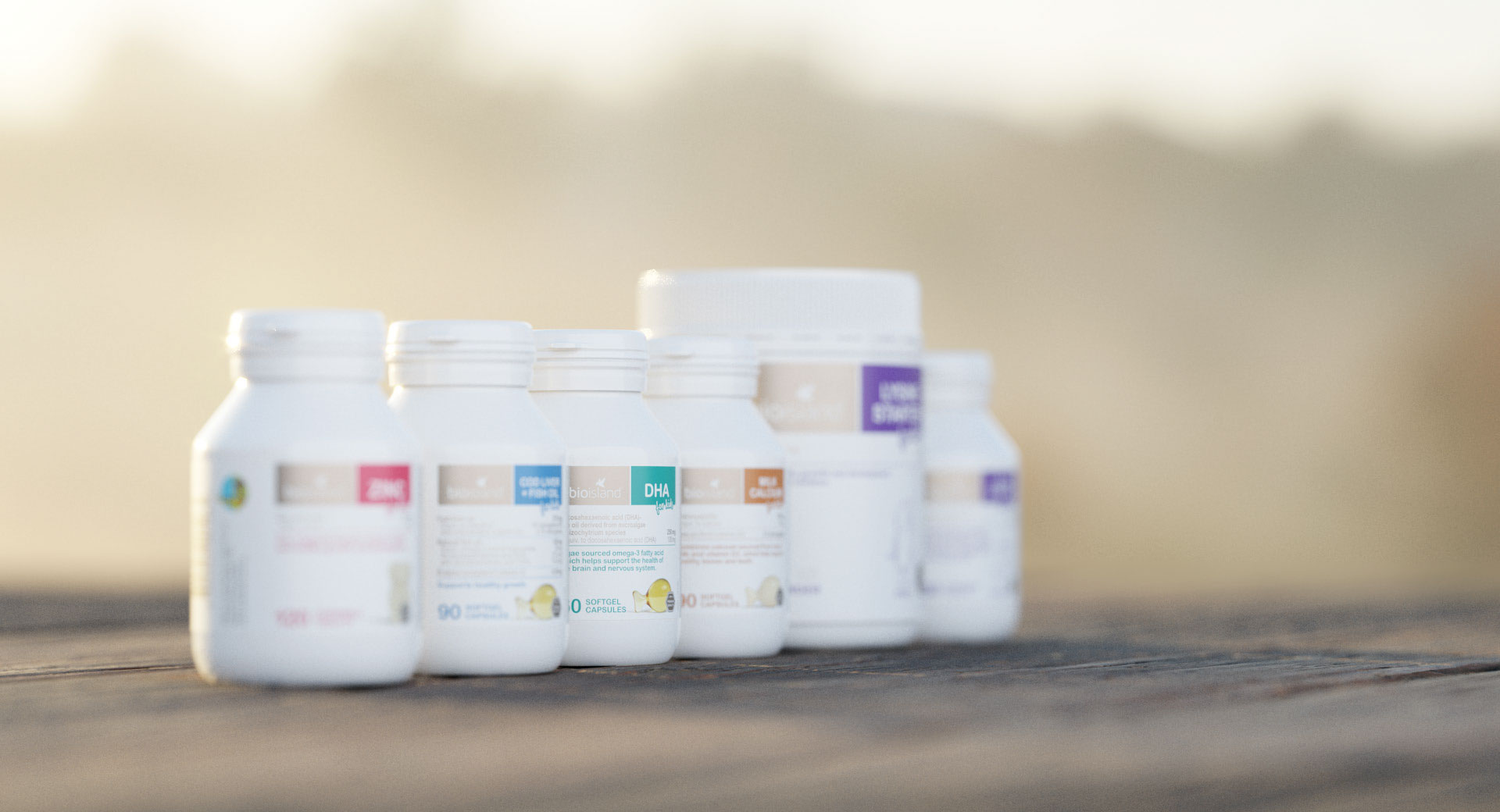
Vitamin D, what does it do and how much do we need?
Technically, although called a ‘vitamin’, vitamin D is in fact a nutrient which converts into a hormone within the body.
By Bio Island Nutrition Team
Vitamin D plays a vital role in many processes with our bodies. It is mainly formed in the skin from exposure to sunlight and is then used by every cell within our bodies. Technically, although called a ‘vitamin’, vitamin D is in fact a nutrient which converts into a hormone within the body. Regardless of whether vitamin D is obtained via sunlight or food source it must first be metabolised by the liver and kidneys to be able to be transformed into active forms of vitamin D.
Vitamin D is primarily required in our bodies for calcium regulation and an important nutrient for maintaining and building strong healthy bones and teeth. Adequate vitamin D are especially important during periods of growth and pregnancy or when dietary calcium intake is low to ensure that calcium absorption is increased. Vitamin D also plays part in other essential functions including regulating phosphorus levels, cell differentiation, and supporting immune, endocrine and cardiovascular systems.
A deficiency in vitamin D can lead to many different illnesses. Severe deficiencies in children can lead to rickets or osteomalacia in adults.
The National Health and Medical Research Council have established an adequate intake level of 5.0 micrograms per day for infants to adult up until 51 years (including pregnancy and breastfeeding). For men and women aged 51-70 years adequate intake is set at 10 micrograms and increased to 15 micrograms per day for those over 70 years of age. This increase later in life is due to the skin having a reduced capacity to produce vitamin D.
Whilst the best source of vitamin D comes from direct sun exposure on your skin, small amounts can also be obtained from food sources such as egg yolks, liver, oily fish and fortified foods such as milk and cereal.
If you are concerned about your vitamin D levels, please speak to your doctor or healthcare professional for further information and advice.
This information does not take into account your personal situation and is general in nature. You should consider whether the information is appropriate for your needs and seek professional medical advice.
Always consult your healthcare professional before taking any supplements or if any concerns arise.




